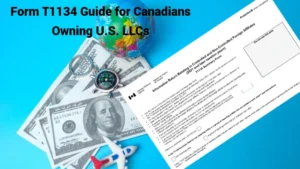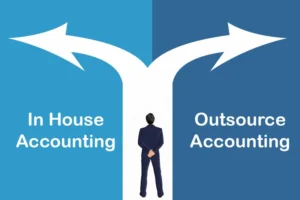As a Canadian entrepreneur, you shouldn’t feel obliged to keep your business just in Canada. You might feel frustrated by all the rules and regulations governing this process. But let me tell you something. The process is seamless. In most cases, you just need to do what US residents do and nothing more.
The United States has a powerful economy and an active startup market. It is full of business opportunities that you can take advantage of to grow your business. Most people are worried that the tax rules will be too complicated. If you’re one of them, you can get a corporate tax accountant to help you.
By registering your business in the US, you can maximize your potential and give your business the boost it needs. If that’s what you want, stay with me till the end of the article.
How to Register a Company in the USA as a Foreigner
Now that you have the basic knowledge, let’s learn how to register a business in the US from Canada.
Step 1: Choose a Name
Business success depends on many factors, including the name you choose for your business. A great business name is:
- Unique
- Relevant
- Memorable
Make sure the web domain and social media handles are available for your chosen name. Check out all social media handles, even if you don’t think you will use them in the future.
Also, you must do your research on the state’s laws regarding business names. In most cases, you can’t choose a company name already taken in the state. And you can’t use restricted words without meeting the required criteria. Some examples are “attorney,” “university,” and “bank.”
Moreover, make sure the name you’re choosing for your business is not trademarked. In order to increase the chances of your application’s acceptance, there should be no likelihood of confusion. You can check the trademarked names in the U.S. Trademark Electronic Search System.
Step 2: Get a Registered Agen
Although you don’t need to live in the US to establish a business there, you need a mailing address. To get a mailing address, you’ll need a registered agent. A registered agent receives mail on your company’s behalf at their physical address in the state.
Here are some of the things you might need to send/receive using a registered agent:
- notices of compliance (for reporting, requirements, etc.)
- revenue/tax department documents
- lawsuits against your company
All 50 states need you to have a registered agent to receive legal documents for your business. Having a Registered Agent is key, because some documents (government correspondence, subpoenas, etc.) need to be delivered in person. If your business operates in multiple states, you’ll need an agent for each.
Note: Your company’s legal address must be in Canada and must be your own. It must be different from your registered agent’s address.
Step 3: Choose Your Business Structure
Choosing the right entity type affects your business’s taxation, administration, and filing requirements. The most common options are Sole Proprietorship, Partnership, LLC, and C-Corporation.
Sole Proprietorship
If you’re the only owner of the company, you can set up your business as a sole proprietorship. This is the simplest structure out there.
Note: In this entity type, administration and taxation become simple. You only pay the business taxes on your individual income tax return. You can file a T1 form to file your personal income tax return.
However, a sole proprietorship doesn’t protect you from legal liabilities. The business isn’t considered a separate business entity. So, you’ll be personally liable if someone sues the business.
The forms you need to file with the IRS for a sole proprietorship depend on many factors. These factors include what your business does, your earnings, the wages you pay, etc.
Common forms to fill are:
- Form 1040 for US residents
- Form 1040-NR for nonresidents
Partnership
If you want to form a company with two or more people, you can go for a partnership. Everything is nearly the same as a sole proprietorship:
- Pass-through taxation
- Simplified administration
- No special filing requirements
- No protection from legal liabilities
When you form a partnership, you must file an annual information return. You need to report the income, profits and losses, deductions, etc. Each partner needs to report their own share individually.
Note: Partners are not considered employees. For this reason, you should not issue a Form W-2. Just file Schedule K-1 (Form 1065) with the IRS. The deadline is March 15.
LLC
An LLC (Limited Liability Company) gets us the best of two worlds. Here are some of the advantages of forming an LLC:
- Limited liability
- Allocation flexibility
- Simplified administration and taxation
An LLC can have as many owners (also called members). These members can be individuals or other business entities. Most US states enable you to form an LLC with only one owner (a single-member LLC).
Note: Some business types (banks, insurance, etc.) cannot form an LLC.
The IRS treats your LLC as a disregarded entity, partnership, or corporation. A disregarded entity is when the IRS considers the LLC as part of the LLC’s member’s tax return.
The tax reports you need to file depend on how the IRS treats your LLC.
- If the LLC is a partnership, you should file Form 1065.
- If it’s a corporation, you should file a Form 1120.
Note: Remember that the LLC should file the same type of tax return consistently each year.
The deadlines also depend on how the IRS treats your LLC. However, you can receive an extension to September 15 if you file Form 7004 by the regular return’s due date.
C-Corporation
A C-corporation is considered a business entity and is taxed separately from its owners. It can have unlimited shareholders and can issue stocks. It should also care for corporate formalities and keep corporate records.
The administrative requirements are more than what you need for an LLC. There’s no pass-through taxation available for corporations. This means that your business income will be double-taxed. Corporations pay income tax, and you also pay income tax on your earnings.
However, there are some ways to avoid double taxation between the US and Canada, such as:
- Foreign Earned Income Exclusion
- Foreign Tax Credit
- US-Canada Tax Treaty
You need to file Form 1120 for your C-corporation. This reports your income, profits and losses, deductions, credits, and income tax liability. Your corporate tax return is due on April 15th if you use a calendar year.
Step 4: Pick the State You Want to Incorporate in
When thinking about how to register a business in the US from Canada, you need to have Delaware and Wyoming in mind. Each one has legal and tax benefits that help business owners like you.
Here are the corporate tax rates of some of the most popular US states to incorporate:
| State | Corporate Tax Rate |
| California | 8.84% |
| Delaware | 8.7% |
| Florida | 5.5% |
| New York | 6.5% |
| Texas | None (Franchise Tax applies) |
| Wyoming | None (No Corporate Tax) |
Wyoming
Wyoming doesn’t need you to file corporate income or franchise tax. Moreover, pass-through entities benefit from Wyoming not imposing state income taxes on individuals.
Wyoming LLC members need to file federal income taxes and state-specific and local taxes.
- SMLLCs (Single-Member LLCs) must file Form 1040 (Schedule C, C-EZ, E, or F, depending on the business).
- MMLLCs (Multi-Member LLCs) need to file Form 1065.
Wyoming is considered one of the lowest-taxed states. Not imposing personal income tax contributes to this ranking. Also, most products and services are taxed at a rate of 4% in Wyoming.
Delaware
Savvy tech firm investors are more inclined to invest in Delaware corporations. That’s why most Fortune 1000 companies and tech firms are in Delaware.
All businesses can benefit from Delaware’s lack of a state or local sales tax. However, a seller of goods or a provider of services also needs to pay the gross receipts tax.
Delaware corporations must pay franchise tax to the Delaware Division of Corporations. You must also file corporate income tax at a rate of 8.7% of federal taxable income.
Note: Delaware requires businesses to provide some licenses annually.
Step 5: Obtain the Required Documents From Canada
The process depends on whether you have a federal-level or provincial-level business. You’re going to need:
- A Certificate of Good Standing
- And/or a Certificate of Compliance
- And/or a certified copy of your Articles of Incorporation
However, it’s still best to check with your desired state. Most states require you to provide these to the Secretary of State’s office.
- If you’re a federal-level incorporated Canadian business, request them from Corporations Canada.
- If you’re a provincial-level incorporated Canadian business, get them from the province.
Step 6: File the Incorporation Articles With the State Body
To establish your business as a lawful entity, you need to register it officially with the state body. The details will vary depending on your chosen incorporation state and entity structure. But you’ll mainly need the following details:
- Business name
- Business purpose
- Principal office address
- Name and address of US registered agent
- Details about business shares (for C-corporations)
Note: All of these vary state by state. Do your own research carefully.
After filling out the organizational forms and paying the required fees, you need to wait for approval. If there are no issues with your filing, it should be done quickly. If not, you might need to revise and resubmit the documents.
The processing timeline depends on the state.
- Wyoming registration takes 3-7 business days.
- Delaware takes around 25 business days. (You can expedite it for an extra fee.)
Step 7: Get an Employer Identification Number (EIN)
To open a bank account in the US for our business, we need to have an EIN (Employer Identification Number). You need to get this from the IRS. Also, you’ll need to register with the IRS anyway because you need to pay taxes.
To apply for the Employer Identification Number online, you can go to the EIN Assistant. It just takes minutes of your time.
Note: You need to complete it in one session, as it will not be saved. 15 minutes of inactivity causes your session to expire, and you’ll need to start again.
It takes 2 weeks to get the EIN via email after nonresidents fax the SS4 Form to the IRS. You can use it to open a bank account, apply for licenses, and file a tax return by mail immediately.
Note: Your EIN will become a permanent record in the IRS in two weeks. Until it does, you cannot:
- File an electronic return
- Make an electronic payment
- Pass an IRS TIN (Taxpayer Identification Number) matching program
Step 8: Open a Bank Account in the US
You can check out startup-centric US banks or choose a regular bank. Check the table below for more information. After choosing a bank that fits all your needs, you can proceed with your EIN and open a bank account.
| Bank Name | Offers | Best for | Pros | Cons |
|---|---|---|---|---|
| Bluevine | Low-cost banking, APY rate on large balances | Small business owners with minimal needs | No monthly fees, up to $3M in FDIC insurance, debit card issuing | Limited transaction amounts, 4 debit cards per account limit |
| Chase for Business | Bank accounts, small business loans, business credit cards | Startups needing a national bank with minimized fees | Credibility, many bank branch locations, line of credit, loans | Monthly service fees, fee-free transaction limits, no finance integrations |
| Mercury | Banking services for VC-backed startups, treasury services, venture debt | VC-backed startups with more than $250K in deposits | No account minimums, overdraft/monthly/account opening fees, corporate credit cards | Long waiting time to withdraw funds from Mercury treasury, no phone support |
Step 9: File the Compliance Reports
Lastly, we all want to maintain our company in good standing. That’s exactly why we need to file compliance reports annually. Filing costs, requirements, and procedures vary in different states. They are also different based on your business type. Most states enable you to file online for your LLC or C-corporation.
Note: The compliance reports and their deadlines vary state by state.
For instance, if you have incorporated your business in Delaware, you must file reports annually. And the deadline for your compliance reports is March 1st.
Wyoming Secretary of State says you’ll need to file the reports on the first day of the anniversary month of formation. So, if you have registered your business on July 18, your annual report is due July 1 of each year.
Why You Should Start a Business in the US from Canada
It’s always a great idea to start a business in the US. The US is full of business opportunities you can take on to grow your business to its true potential. The good news is that it doesn’t matter where you are.
Now that you know how to register a business in the US from Canada online, let’s see why we should do that. Here are some reasons why you should consider setting up a company in the USA by a foreigner:
1. Expanding Your Market
The bigger your market, the bigger your success. Based on SBA’s report, there are 33,185,550 small businesses in the United States. That’s a lot of opportunity for you to target.
2. Higher Purchasing Power
Worldometers says that with a $76,399 GDP (PPP) per capita, the US stands at 8th place, while Canada’s $58,400 brings it to 22nd place. Picking a market with high purchasing power enables you to sell your products and services more.
3. Venture Capitalists and Investors
If you don’t want to deal with bootstrapping issues, you’ll need investors. What better place than a country filled with savvy investors looking for growth? According to the National Venture Capital Association (NVCA), over 3,400 venture capital firms offer investment options in the United States.
4. Straightforward Business Partnerships
One way to grow your business is by partnering up with others. There are win-win opportunities that could take your business to another level.
As I said before, the US has over 33 million small businesses. It’s the perfect place for commercial and partnership opportunities.
5. Effective Tax, Visa, and Corporate Business Laws
The US offers clear rules on how to navigate through taxes, visas, and the whole business world. It might seem a bit complex at first, but you’ll get the hang of them in no time.
Where You Should Incorporate Your Business in the USA
Every state in the US has unique pros and cons, and every business is different. While Wyoming may be a refuge for LLCs, Delaware boasts modern corporate statutes. You need to weigh the pros and cons of each state before deciding where you should incorporate your business.
I know you’re eager to know how to register a business in the US from Canada, but this is an important prerequisite. You need to do extensive research on perks, laws, and tax benefits before choosing. Here’s a list of what you need to consider:
- Laws governing businesses
- Fees for annual reports
- Tax responsibilities
- Filing costs
CNBC believes that Austin, Texas, is the best place to start a business for several reasons.
- The environment is great for the success of small businesses.
- The cost of doing business is low.
- The quality of life is high.
- Labor force participation is good.
- Diversity is just perfect for businesses.
Here are some states that you can choose to incorporate your business in:
| State | Reasons to Choose |
| Delaware | – Business-friendly laws and courts specializing in corporate cases.- No sales tax for goods and services.- No state corporate income tax for companies not operating in Delaware. |
| Nevada | – No state income tax or corporate tax. – Privacy-friendly (no need to list owners publicly).- Easy registration process for non-residents. |
| Wyoming | – No state corporate or personal income tax.- Low filing fees and annual fees.- Strong privacy protections for business owners. |
| Texas | – Large market and strong economic growth. – Access to major industries like energy, tech, and healthcare.- No state personal income tax. |
| Florida | – No state income tax.- Thriving tourism and real estate industries.- Popular for LLCs due to simple filing requirements. |
| California | – Popular for LLCs due to simple filing requirements.- Access to venture capital and investors.- Strategic location for international business. |
| New York | – Hub for finance, fashion, media, and tech industries.- High visibility and credibility for businesses.- Access to diverse talent and resources. |
What Tax and Visa Rules Govern US Businesses?
When you’re getting to know how to register a business in the US from Canada, you need to consider taxation and visa rules.
Taxation
Tax compliance is vital, as you don’t want the IRS poking you. Going for pass-through taxation or filing as a C-corp affects tax obligations. Taxation also varies based on the state in which the business operates.
Tax professionals and CPAs have a deep understanding of US and Canadian tax laws. Consulting with them to ensure your filing is on point will give you peace of mind. Book a free call with our CPA and learn everything you want to know about tax laws.
USMCA (United States-Mexico-Canada Agreement)
The USMCA is a new agreement that replaces NAFTA (North American Free Trade Agreement). Most chapters in NAFTA still remain, with a few exceptions. In simple terms, the USMCA supports mutually beneficial trade. This agreement enables North America to experience:
- fair trade
- free markets
- powerful economy
The revisions to NAFTA include:
- labor provisions
- dispute settlement
- environmental provisions
- motor vehicle industry rules of origin
- and intellectual property rights (IPR) protection
The USMCA has been in effect since 2010 and will continue until July 2026. The US, Mexico, and Canada will then review it, which will help them decide whether to renew it for another 16 years.
US and Canada Tax Treaty
There are some instances in which people can be taxed twice. Such an instance was analyzed when we talked about C-corporations.
To avoid double taxation, the US and Canada put an agreement in place for taxation. Learn how the tax treaty works between Canada and the US to avoid any problems.
This treaty ensured justice and enabled residents and businesses to benefit from more transparent rules. The tax treaty came into effect in 1980. It covers various types of income, including:
- Earnings from employment
- Business profits
- Dividends
- Interest
- Royalties
- Sale of assets
Visas
Registering your business in the US as a non-resident doesn’t automatically provide you with an immigration visa. However, you can apply for visas that are available to founders in the US. You can get a US business incorporation accountant in Toronto and stop worrying about all the complexities.
Canadian citizens have access to several types of work visas, including, but not limited to:
- H-1B → For Canadian entrepreneurs
- E-2 → for Canadians who want to invest in the US
- E-2 → for Canadians who buy existing US businesses
- E-2 → for Canadians starting a new business in the US
- EB-5 → for Canadian citizens who want to have a green card
- E-1, L-1, and O-1 → for employees who want to work for a US company
Final Words
In this article, we covered everything you need to know to register a business in the US from Canada. From why you should even think about it to where and how you should do it, from hiring employees to tax and visa rules, we covered everything.
I wrote this article to help you register a business online in the US from Canada. But if that still seems too much, there is an easy way.
Need help incorporating your business in the USA? Our team specializes in helping small businesses navigate these exact challenges. Book a FREE consultation with our CPA and ensure you’re on the right track.
FAQs
There are a number of steps to take to register a business in the USA as a foreigner. You need to:
- Choose a Name
- Get a Registered Agent
- Choose Your Business Structure
- Pick the State You Want to Incorporate in
- Obtain the Required Documents From Canada
- File the Incorporation Articles With the State Body
- Get an Employer Identification Number (EIN)
- Open a Bank Account in the US
- File Compliance Reports
A Canadian citizen can register a business in the USA online in less than 10 minutes. However, the exact timeline depends on the business structure and the state you want to incorporate.
Yes, you can. It’s easy if you follow all nine steps, from picking a name to filing the compliance files. In rare conditions, you might be required to file some documents in person.
Submit a written request to Corporations Canada and include:
- The type of certificate you want
- Your corporation’s name
- Your corporation’s phone number
- The applicant’s name
- The applicant’s phone number
- Where the documents should be delivered
- The required fee
Conduct extensive market research in your chosen state, niche, and timing. Focus on your competitive advantage and create a no-brainer offer that your target cannot say no to.
Absolutely! Depending on the conditions and the business you are launching, you can request funding. However, you can only do so after registering your business in the US from Canada.
- Access to a larger market: The US has over 331 million consumers
- Easier access to venture capital: The US has a robust investment landscape
- Simplified cross-border trade through agreements like the USMCA
- Increased trust and credibility with American customers and partners
Requirements usually include:
- EIN (Employer Identification Number)
- Articles of Organization/Incorporation
- A valid Canadian passport or ID
Banks like Bank of America, Chase, and Wells Fargo cater to non-residents but may require in-person visits. Online banking solutions like Wise and Payoneer can simplify international transactions.
No, you can register and run a business remotely without a visa.
If you need to manage operations in the US, consider:
- B-1 Visa (Business Visitor): For short-term trips to attend meetings or manage operations.
- E-2 Visa (Investor): For significant investments in the US.
- Formation fees: $50–$500 (varies by state)
- Registered agent fees: $50–$300/year
- EIN application: Free
- Legal or consultation fees: $500–$2,000 (optional)
- Bank account setup: May require a deposit ($0–$1,000)






